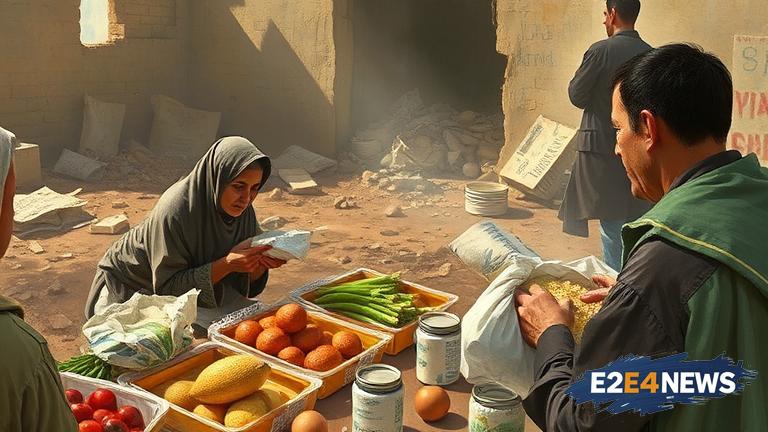The Gaza Strip, a region located on the eastern coast of the Mediterranean Sea, is currently experiencing a devastating food crisis. The crisis has been exacerbated by the ongoing Israeli-Palestinian conflict, which has resulted in severe economic sanctions and restrictions on the movement of people and goods. As a result, many residents of Gaza are struggling to find basic necessities like bread, vegetables, and meat. The situation is particularly dire for the most vulnerable members of the population, including children, the elderly, and those with disabilities. Many families are forced to rely on international aid organizations for food assistance, but even these efforts are often hindered by bureaucratic delays and funding shortages. The food crisis in Gaza is not only a humanitarian issue, but also a political one, with many arguing that the Israeli government’s blockade of the region is a form of collective punishment. The blockade, which has been in place since 2007, has severely limited the ability of people and goods to enter and exit the region, leading to widespread poverty and unemployment. The effects of the blockade are evident in the many empty shelves and closed businesses that line the streets of Gaza City. Despite the challenges, many residents of Gaza are finding ways to cope with the food crisis, including by growing their own vegetables and raising their own animals. However, these efforts are often hindered by the lack of access to basic resources like water and electricity. The international community has been criticized for its response to the crisis, with many arguing that more needs to be done to address the root causes of the problem. The United Nations has warned that the situation in Gaza is on the verge of becoming a full-blown humanitarian disaster, with potentially catastrophic consequences for the region. The food crisis in Gaza is a complex issue, with many different factors contributing to the problem. However, at its core, it is a story about the human cost of conflict and the importance of ensuring that all people have access to basic necessities like food and water. The situation in Gaza is a reminder of the need for a peaceful and lasting resolution to the Israeli-Palestinian conflict, one that takes into account the needs and rights of all people in the region. As the crisis continues to deepen, it is imperative that the international community takes action to address the root causes of the problem and provide support to those affected. This includes increasing funding for humanitarian aid, advocating for an end to the blockade, and supporting efforts to promote economic development and stability in the region. Ultimately, the food crisis in Gaza is a call to action, a reminder of the need for compassion, empathy, and understanding in the face of human suffering.
